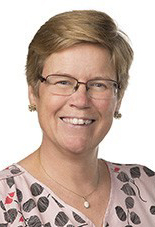
The Research School of Finance, Actuarial Studies and Statistics in the College of Business and Economics at the Australian National University is pleased to host the 2022 Australasian Actuarial Education and Research Symposium (AAERS) on 24-25th November 2022. The symposium will be held in-person at the university Acton campus in a COVID-safe environment.
The AAERS is an annual international actuarial conference that brings together researchers, educators, industry practitioners and research students from around the world to share their research and discuss actuarial education.
This year’s AAERS will feature prominent invited speakers and contributed presentations in all areas of actuarial research and education – please refer to the Abstract Submission for further information.
There are no submission or registration fees for the symposium.
For further information, please contact the organising committee at aaers2022.rsfas@anu.edu.au
Registrations
 |
Bridget Browne Bridget is a Partner at Ernst & Young and Senior Lecturer at ANU providing actuarial consulting advice to the government sector in health and human services and risk quantification. Bridget has over 30 years’ experience and is a Certified Enterprise Risk Actuary and a Fellow of both the Institute of Actuaries of Australia and the Institute and Faculty of Actuaries, UK. She has a wealth of previous experience in financial services having practised in the life insurance and reinsurance sectors in Australia internationally. Bridget has been a member of the Centre for Excellence in Population Ageing Research and is a Graduate of the Australian Institute of Company Directors. Her current focus areas include supporting the government in aged care, disability, veterans affairs and public and private health arrangements, particularly through better use of public data assets. |
 |
Maathu Ranjan Maathu Ranjan joined the National Disability Insurance Agency (NDIA) in 2015 and is a Senior Actuary with over twelve years of experience in the disability and general insurance sectors. Over the last seven years, Maathu has assisted the Agency with evaluating and delivering key Scheme initiatives and priorities including the early childhood strategy, framework for consistent decision making, review of pricing arrangements, intergovernmental service agreements as well as workforce modelling. She has also undertaken actuarial work in accident compensation, health and aged care. Maathu is also a keen researcher, winning the Actuaries Institute Melville Prize in 2012 and the International Actuarial Association’s Bob Alting von Geusau Prize in 2014. She is currently pursuing her PhD part time, investigating the impact of government supports on prevalence of Autism Spectrum Disorder and younger onset disability. Maathu currently leads the Actuarial Strategic Initiatives team at the NDIA. |
 |
Mogens Steffensen Mogens Steffensen is a professor of life insurance mathematics at the University of Copenhagen; a member of the board of directors and chairman of the audit committee of PFA Pension, the largest Danish commercial pension fund; and a member of the Solvency and Accounting Committee under the Danish Actuarial Association. He has contributed to the development of market-based valuation methods in insurance. His research also covers various decision making problems in insurance and finance, and he is recently mainly interested in integrating insurance and pension decisions into classical consumption-investment problems. He participates actively in industrial discussions about accounting, solvency, risk management, and product design, and he has taken part in several research projects together with partners in the Danish pension industry. |
 |
Guy Thorburn Guy is the Australian Government Actuary (AGA), the Reviewing Actuary to the NDIS, the Reviewing Actuary to the newly established Cyclone Reinsurance Pool, and is a Board member of the Tuition Protection Schemes for international and domestic students. He is also a member of the Aboriginal and Torres Strait Islander Demographic Statistics Expert Advisory Group. The AGA provides independent actuarial and policy advice across a wide range of matters to the Australian Government, its departments and agencies. Subject areas include superannuation, retirement incomes, military compensation, insurance, reinsurance, education funding (income contingent loans) and social security. The AGA also publishes the Australian Life Tables every five years. Guy’s appointment to the role of the Australian Government Actuary followed a career in the private sector, which included working in insurance, superannuation, retirement incomes and energy sectors. He has been an appointed actuary under the Life Insurance Act.
|
|
|
DAY 1: THURSDAY 24 NOVEMBER, 2022 |
|
|---|---|---|
|
8:00-9:00 |
Registration |
|
|
9:00-9:15 |
Welcome to Country |
|
|
9:15-9:20 |
Welcome to the College of Business and Economics. Steven Roberts, CBE Dean, ANU |
|
|
9:20-9:25 |
Opening remarks and logistics. Adam Butt, Head of Actuarial Studies, ANU |
|
|
9:25-10:10 |
Plenary Session 1 |
|
|
Bridget Browne, Long term financing options for aged care in Australia, EY, ANU |
||
|
10:10-10:40 |
Coffee Break/Morning tea |
|
|
10:40-12.00 |
Concurrent Session 1 |
|
|
Retirement |
Risk Modelling |
|
|
Funding Retirement with Public Reverse Mortgages: An Evaluation of Australia’s Home Equity Access Scheme. Katja Hanewald, UNSW |
Multivariate matrix-exponential affine mixtures and their applications in risk theory. Eric Cheung, UNSW |
|
|
Optimal Superannuation Guarantee and housing tenure arrangements over the life cycle. Yifu Tang, ANU |
Bivariate Distribution Regression with Application to Insurance Data. Yunyun Wang, Monash University |
|
|
A life-cycle model of individual consumption, leisure and portfolio choice under the Australia social security system. Zhuoran Liu, ANU |
Some remarks on a generalized inverse Gaussian type integral with applications. Jae Kyung Woo, UNSW |
|
|
Modelling Retirement Income Risks and Solutions: A Retirement Income Toolkit in R. Michael Sherris, UNSW |
Worst-Case Upper Bound of Moments Under Partial Ambiguity. Yunshen Yang, UNSW |
|
|
12:00-13:30 |
Lunch |
|
|
13:30-14:15 |
Plenary Session 2 |
|
|
Mogens Steffensen, Contemporary Life: From Pandemics to Annuity Optimization, University of Copenhagen |
||
|
14:15-15:35 |
Concurrent Session 2 |
|
|
Mortality modelling |
Applications of Statistical Modelling |
|
|
A Short Ramble Through the Affine Mortality Model Countryside. Michael Sherris, UNSW |
Microsimulation Modelling for Malaria Cost Estimations in Kenya. Titus Rotich, ANU |
|
|
Affine Mortality Models with Jumps: Parameter Estimation and Forecasting. Len Patrick Dominic Garces, UNSW |
Default risk propagation in multilayer systems under common shock. Katja Ignatieva, UNSW |
|
|
COVID-19: Assessing Excess Mortality in Australia. Han Li, University of Melbourne |
A Spatial EVT Approach to Storm Loss Modelling. Sizhe Chen, Macquarie University |
|
|
A supervised mortality learning. Ping Chen, University of Melbourne |
Learning with High-Cardinality Categorical Features in Actuarial Applications. Melantha Wang, UNSW |
|
|
15:35-16:00 |
Afternoon tea |
|
|
16:00-17:00 |
Concurrent Session 3 |
|
|
Porftfolio Choice |
Topics in Insurance I |
|
|
Comparing Modern Portfolio Theory and Machine/Deep Learning Methods when Constructing Optimal Asset Portfolios Using Price Histories. Damian Gregory, Curtin University |
A Big Data Framework to Address Building Sum Insured Misestimation. Callum Roberts, Bond University |
|
|
Generalised Option-Based Portfolio Insurance Strategy. William Lim, ANU |
Analytic Valuation of Guaranteed Lifetime Withdrawal Benefits and an Alternative to the Ratchet. Darcy Harcourt, Victoria University of Wellington |
|
|
Optimal Asset Allocation under Search Frictions and Stochastic Interest Rate. Ning Wang, Macquarie University |
Welfare Implications of Fairness and Accountability in Insurance Pricing. Fei Huang, UNSW |
|
|
|
DAY 2: FRIDAY 25 NOVEMBER, 2022 |
|
|
9:30-10:15 |
Plenary Session 3 |
|
|
Guy Thorburn, The Cyclone Reinsurance Pool – the journey so far, Australian Government Actuary |
||
|
10:15-10:40 |
Coffee Break/Morning tea |
|
|
10:40 - 12:00 |
Concurrent Session 4 |
|
|
Annuities |
Topics in Insurance II |
|
|
Less-expensive long-term annuities linked to mortality, cash and equity. Kevin John Fergusson, Bond University |
A class of non-zero-sum stochastic differential games between two mean-variance insurers under stochastic volatility. Jiannan Zhang, UNSW |
|
|
Mean-variance longevity risk-sharing for annuity contracts. Hamza Hanbali, Monash University |
Insurance for catastrophes - indemnity vs. parametric insurance with imperfect information. Eric Ulm, Victoria University of Wellington |
|
|
The Impact of Introducing Investment-Linked Annuities (ILAs) into the Australian Retirement System. Wenqi (Olivia) Ai, ANU, Taylor Fry |
Quantifying and Hedging Moral Hazard Risk in Disability Income Insurance. Annika Schneider, TuM |
|
|
A Sensitivity Approach for Understanding Mortality and Interest Rate Risks of Life Annuities. Jianjie Shi, Monash University |
Data Analytics Sandbox: Engaging the Next Generation of Actuaries to Provide Solutions to Today’s Industry Problems. Fei Huang and Kevin Liu, UNSW |
|
|
12:00-13:30 |
Lunch |
|
|
13:30-14:15 |
Plenary Session 4 |
|
|
Maathu Ranjan, Recent experience and emerging risks, National Disability Insurance Agency |
||
|
14:15-14:35 |
Education Session |
|
|
Putting students at the centre: an update on the Actuaries Institute's Education Program. Actuaries Institute |
||
|
14:35-15:45 |
Education Panel Discussion |
|
|
The tensions in actuarial asessement. Mike Callan (Actuaries Institute), Kevin Liu (UNSW), Jo-Anne Morgan (Curtin University) |
||
|
15:45-16:00 |
Closing remarks |
|
To be advised.
The symposium is scheduled to be held during a Federal parliamentary sitting week and due to the impact of this on accommodation availability in Canberra, registrants are recommended to book accommodation as early as possible.
We have a special arrangement with QT hotel for AAERS guests. Please use the following information to make your booking with QT hotel. Please note that the special rates and the number of rooms held are limited and available on a first-come-first-served basis.
Hotel Name: QT Canberra
Hotel Address: 1 London Cct, Canberra ACT 2601
Room Type: QT King
Check-in Date: Wednesday 23rd November 2022
Check-out Date: Friday 25th November 2022
To access your special rates please visit https://www.qthotelsandresorts.com/canberra
(1) On the top-left, click on "BOOK".
(2) Select the check-in and check-out dates (as specified above), then select the number of guests/room.
(3) Under the "I have a code" option enter the block code "AAERS22" in the “Block Code" field (discounted rates will appear on the rates screen).
Alternatively, you can call the Reservations Team to book over the phone quoting the block code AAERS22.
Reservations operate Monday – Friday from 9 am till 5 pm
Phone: +61 2 6867 1205
Email: reservations_qtcanberra@evt.com
The symposium will be run according to COVID policies of the Australian National University. Registrants will be required to comply with the risk management policies of the symposium. Updated information will be provided here, and to registrants, as and when relevant.
- Dr Aaron Bruhn
- Associate Professor Adam Butt
- Associate Professor Tim Higgins
- Lucy Hu
- Dr Gaurav Khemka
- William Lim
- Jacie Liu
- Abhinav Metha
- Dr Jananie William
Abstract submission
We welcome contributed presentations in all areas of actuarial research and education. All presentations are planned to be 20 minutes, with 10 minutes allocated for questions and discussions, although this is subject to change.
The closing date for submission of abstracts is Sunday 21 August 2022. Abstracts should be 150-300 words. Please complete all fields below to submit your abstract.
Authors will be notified whether their proposed presentations have been accepted to the conference by Friday 9 September 2022. Papers and presentations will be due for submission on Friday 11 November. Note all accepted authors will need to register for the conference to be included in the program.
The submission window is now closed.
